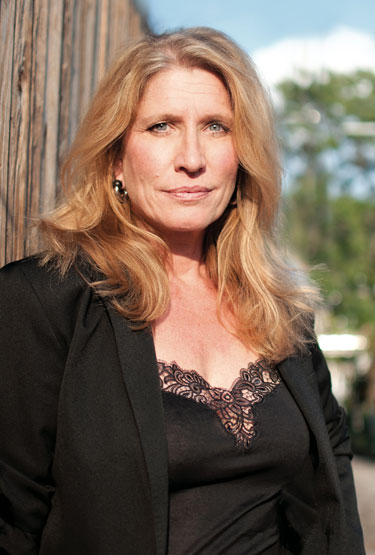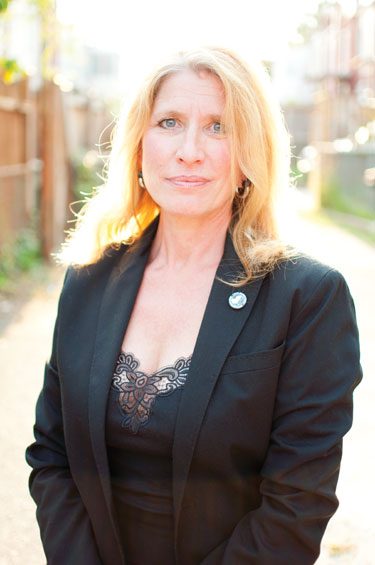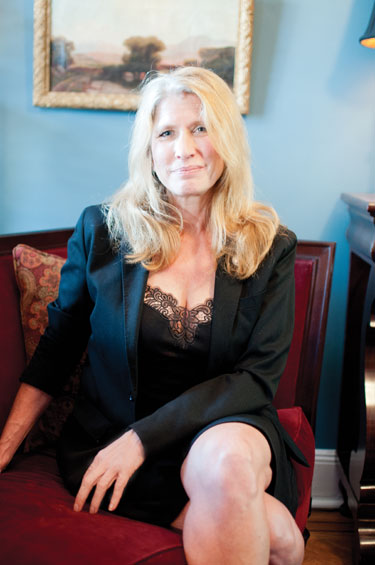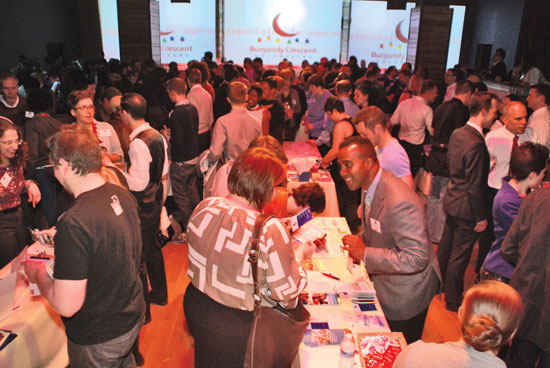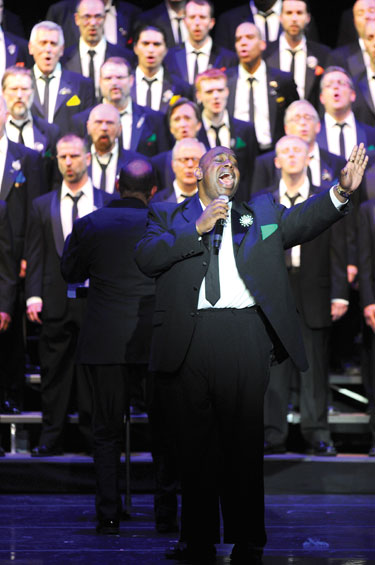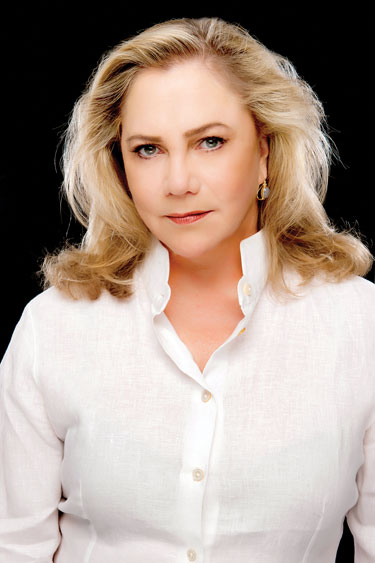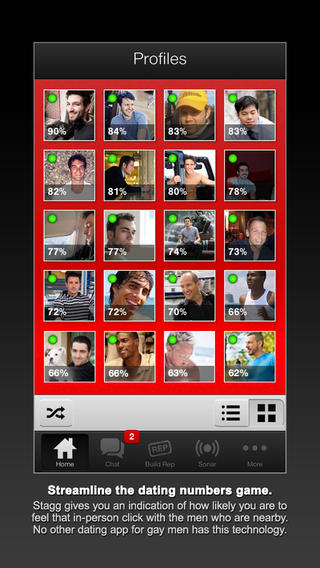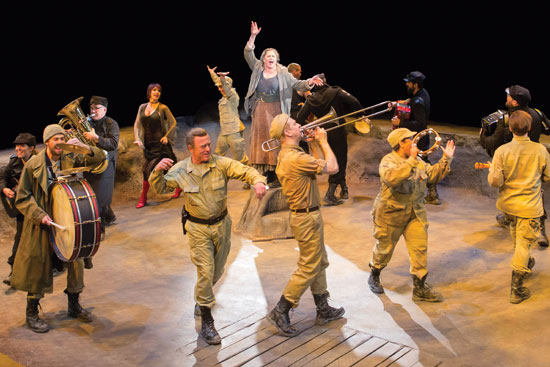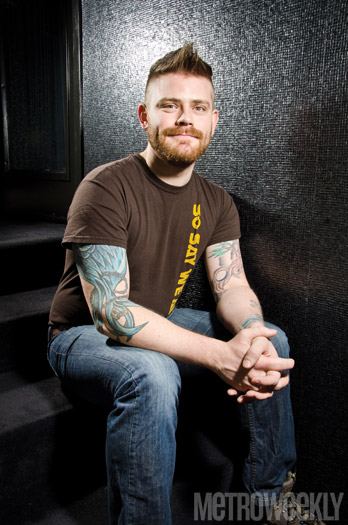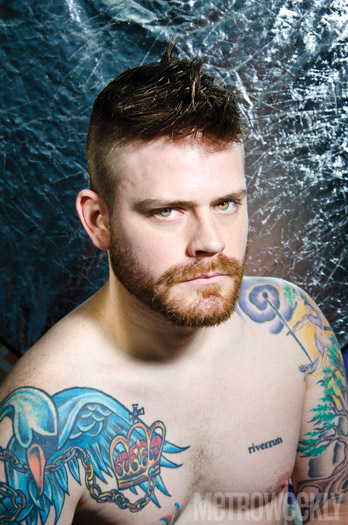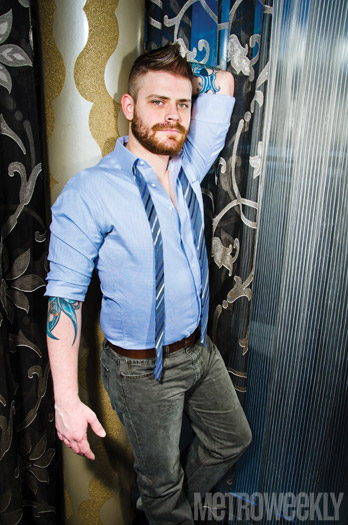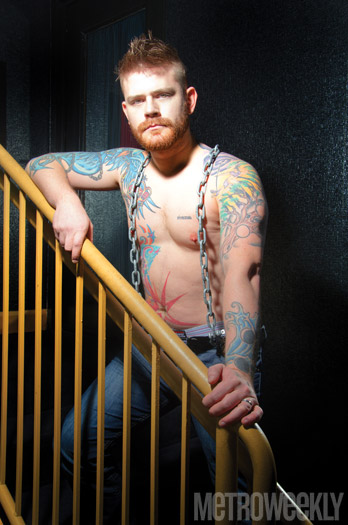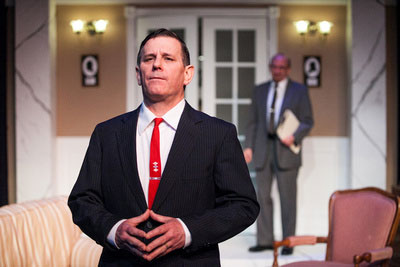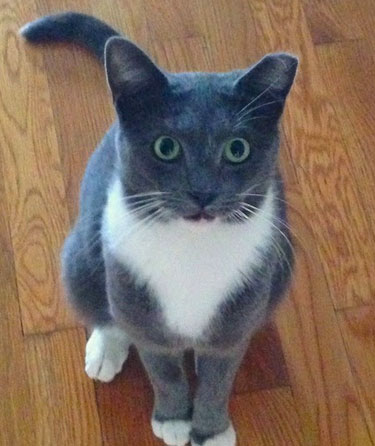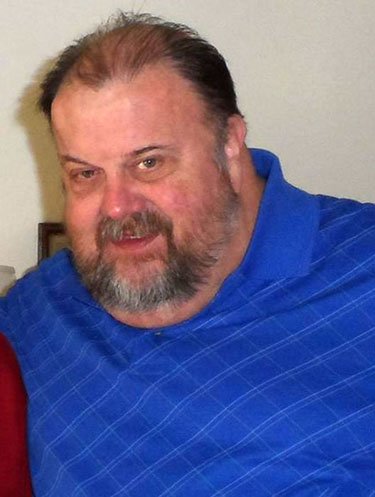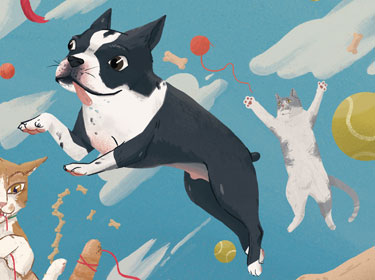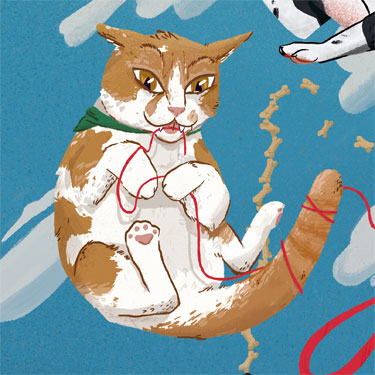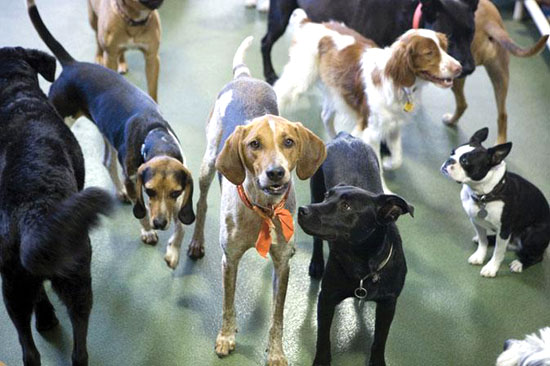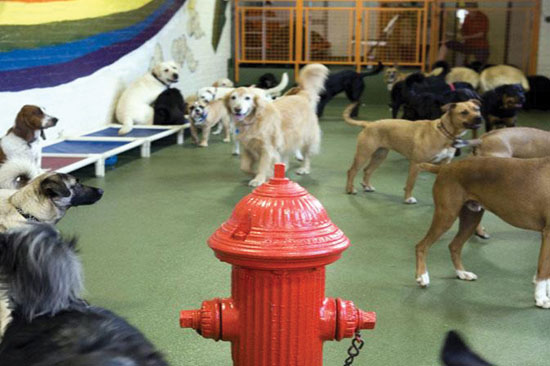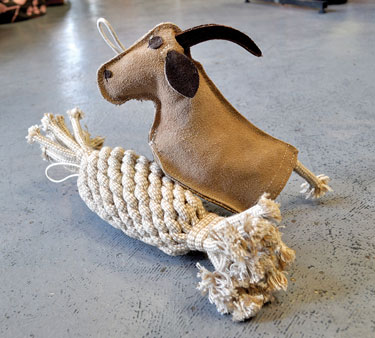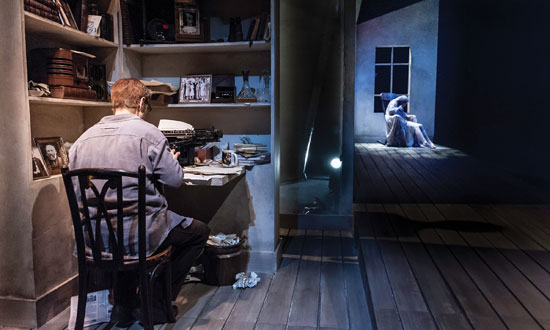Feature Story:
Someone you know is a sex worker.
Historian Melinda Chateauvert cites that slogan, from a San Francisco health and advocacy organization, in her new book Sex Workers Unite! A History of the Movement from Stonewall to SlutWalk.
![Mindy Chateauvert]()
Mindy Chateauvert
(Photo by Todd Franson)
Chateauvert's book is a well-researched examination of a sector of society and the U.S. labor market that has grown from its legendary status as the world's oldest -- yet most maligned -- profession, to becoming all-but mainstream, though certainly still underappreciated and disrespected.
It's definitely not just about prostitutes anymore. "Sex workers are laborers who earn money to perform sexual services or who provide erotic entertainment to clients individually or collectively," Chateauvert writes. From prostitutes to escorts, from porn stars and webcam performers to go-go boys and strippers -- and all the non-sex workers who support and promote them -- the sex sector is no longer confined to a big city's red-light district or "bad" part of town. Its services are essentially available anywhere, to anyone with Internet access or at least the means to travel.
Chateauvert, a longtime D.C. resident who is now a research fellow at the University of Pennsylvania, didn't write Sex Workers Unite! merely to shine an overdue light on the sex-worker movement. She intends it as something of a call to action to fight oppression, criminalization and especially violence against sex workers. More than 3,000 women have died in the last four decades in the line of sex work in the U.S., and law enforcement agencies, from the Department of Justice to local police departments, have been slow to investigate crimes against sex workers, from rape to murder. They've also continually shown little respect for those employed in the business, Chateauvert argues.
Meanwhile, organizations in the LGBT community have only recently started to advocate for sex workers. And other activists on the left and right have generally only talked about sex workers in terms of being powerless victims, forced into a form of modern-day slavery.
"I would say a miniscule number of people are coerced into doing sex work," Chateauvert asserts. Instead, she says, the vast majority of sex workers do it by choice or circumstance.
Chateauvert may be known to many for her involvement in the leather community, whether as a member of Centaur MC, the group that puts on the annual Mid-Atlantic Leather Weekend, or serving on the board of the Chicago-based Leather Archives and Museum. But she's also served on the boards of the D.C.-based HIPS, or Helping Individual Prostitutes Survive, and the Baltimore-based National Coalition for Sexual Freedom, where a decade ago she ran an emergency crisis line.
The Iowa City, Iowa, native credits her mother for her "lifelong interest" in social justice. Says the youthful 55-year-old: "I've been involved in social justice movements since I was a young girl, with my mother dragging me off to various Vietnam War protests."
To turn a phrase, you can take the woman out of Iowa, but you can't take Iowa out of the woman.
METRO WEEKLY: Beyond your lifelong activism for social justice, was there something specific that triggered you to write this book, or triggered your obvious passion on this topic?
MELINDA CHATEAUVERT: I think the main impetus, maybe the germination of what this book eventually became, was actually the Millennium March, and all the controversy around the faith and family theme that was being promoted for that march in 2000.
I was very much involved with groups that were challenging that theme. We felt that it was repressive, because it failed to acknowledge that some of us don't give two cents -- I'm substituting a printable word -- for marriage. We're not religious. We don't find a need to be involved in faith issues or faith organizing. And it was very repressive, or dismissive, of transgender people -- people who didn't conform to a heteronormative lifestyle. That was where I really plunged into these issues about what it meant to be marginalized, what it meant to be "respectable."
MW: Especially in D.C., many people know you for your involvement in the leather community. That's tied to the Millennium March and your advocacy for sex work too?
CHATEAUVERT: Many people involved in that Millennium March that I got involved with were coming from the leather community. And they were feeling that this was definitely a slap in the face to people who weren't interested in monogamous, heteronormative marriages and picket fences. So that was one thing about the leather community, in terms of getting involved for me: seeing how politics looks differently if you are not part of a mainstream.
The leather community is also really important in this because a lot of work and a lot of the funding, a lot of the activism around some of these issues, has come from the leather community, particularly the gay and lesbian leather community. I think there's a lot of overlap in the issues that folks in the leather community deal with, in terms of stigmatization.
MW: The subtitle of your book references Stonewall. What I found interesting is that Stonewall in popular conception is about the various gay men at the Stonewall Inn, but also the drag queens who in fact led the protest against the police. Which, as you detail in your book, is still not fully capturing the people that were there -- including transgender people and sex workers.
CHATEAUVERT: That's not just popular opinion, but the view of most historians too. Let's be really clear here. Those "drag queens" were transgender sex workers. [Laughs.]
MW: And when we refer to them simply as drag queens, it's kind of dressing up the naked truth.
CHATEAUVERT: [Laughs.] Let's just call it a lie, okay? It's ironic. Yeah, it's changing their representation into something that's acceptable, in a sort of camp way. Not being totally dismissive -- acknowledging that they were there.
But drag can sometimes be a very different performance lifestyle, if you will, than being transgender. And to lump those into the same category is, I think, not particularly useful.
MW: I know it's been around a few decades, but is the term "sex worker" in common usage now?
CHATEAUVERT: It's actually the preferred use in UNAIDS and other kinds of outreach work around the world. It's not accepted in the AP Style Manual, but the United Nations recognizes it.
![Mindy Chateauvert]()
Mindy Chateauvert
(Photo by Todd Franson)
MW: Does the AP Style Manual specify anything related to the profession?
CHATEAUVERT: There's been some debate on it. There's been no rule that I've seen, although one of the bloggers who writes about usage and a New York Times reporter has spoken or has written about whether or not "sex worker," versus "prostitute," should be used. There was a little bit of pressure to start pushing The New York Times and other mainstream publications to use the term "sex worker" rather than "prostitute," but that hasn't become a universal rule, no.
MW: But the big LGBT organizations that a lot of LGBT people give to, are they using the term? Are they doing anything to help sex workers?
CHATEAUVERT: Some of the organizations are. The National Center for Transgender Equality -- Executive Director Mara Keisling has been doing some really good work. Some of their statements have been very, very strong. Amnesty International has been very good. ACLU as a national organization has been very good, although not necessarily within its LGBT-equality arm, more in its international work, especially around violence and criminalization issues. The Task Force, in conversations that I've had with Executive Director Rea Carey, is beginning to pick up those issues and certainly has been fairly, if not having a specific project, has become more vocal, as we saw at Creating Change -- more aware that addressing the issues of sex work are important for the LGBT community. I have nothing to say about HRC. [Laughs.]
MW: Doesn't a lot of the stigmatization of sex work and sex workers go back to the United States' Puritan beginnings?
CHATEAUVERT: A lot of people want to say that, and as a historian, one wants to base it within a Hawthorne/The Scarlet Letter/New England puritanism. I understand that that's one way of situating the history of that stigma. However, I think it's important to remember that prostitution was not a criminal offense in the United States until World War I. And most countries in the E.U., as well as other places around the world, abolished prostitution as a criminal offense after World War II.
MW: Do you have hope for progress?
CHATEAUVERT: I see a lot of progress happening. I think that this is a very complex movement. When we talk about decriminalization, what are we talking about decriminalizing? In fact, most workers in the sex industry work legal jobs. That's the other part to remember. If you work in a strip club, if you're an adult entertainer, if you are a performer in pornography, and all those other kinds of jobs that are involved or associated with it, that's more than half of the people working in the sex industry. They're already working in legal jobs.
MW: So now we just need to get the other half?
CHATEAUVERT: In some ways we are talking about the other half -- actually less than the other half. The estimates are really hard to judge. For places like California, there are more than 500 registered businesses in the sex industry, each employing anywhere between two and over 1,000 people. That's a very different kind of number than just saying, "Oh, we're only talking about the people who stand on the streets at night and solicit from passing cars." And it's a very different picture.
MW: That raises a point from your book, about the crackdown on prostitution in Logan Circle here in D.C. Early in the book you write, "Neighborhood residents take false comfort in the belief that empty sidewalks discourage crime." Can you explain what you mean by that?
CHATEAUVERT: The notion that empty streets means that there's no crime, or leads to a lessening of crimes, actually means that there are fewer people out on the street, or participating and watching what's going on out on the street -- in order to, if you will, sound the neighborhood alarm. Or to alert people that a crime may be taking place.
We've got this very strange, "If you see something, say something" culture for every public place except when it comes to streets. And sex workers who work on the street are just as invested in not having muggers on the street, not having other people out there who are interested in doing violence against them, or robbing and stealing from them. They would like safe streets too! Civilians seem to think that the presence of people working on the street brings in other people who prey on them, or prey upon the people who live there. If there was better communication, if there was more openness between allowing sex workers to report people who are doing violence, or people who are breaking and entering, the situation would be very different. Instead, we "clean up the streets," thinking that's safer. Having more people on the streets is actually safer.
MW: You're saying it's similar to the "war on drugs," and the way the police and neighborhoods deal with drugs: generally taking easy ways out rather than tackling the harder, more systemic issues.
CHATEAUVERT: Exactly. One of the things to remember is an experiment that happened in England -- there's also been small experiments here in the United States. When the cops de-prioritize the arrests of prostitutes and focus more on violent crime, especially violent crime against sex workers, they actually end up doing better in terms of arresting the people who are more dangerous criminals than by simply going after what [former New York Mayor Rudy] Giuliani liked to call "quality of life" crimes.
Last week I was talking to some folks who were doing organizing in the San Francisco area -- this was South of Market, so still a somewhat transitional neighborhood in different kinds of ways. The residents were complaining to the police about the "screaming prostitutes and drag queens." They were out on the streets disturbing their nights and the police weren't doing anything to get them quiet or get them out of there. That's a typical situation. What happened in this particular instance was that when the residents met with the police, members of the Sex Workers Outreach Project, SWOP Bay Area, which is a very active sex-workers organization, were also present. And when they started talking to the residents and the police, they started breaking down what was actually going on there.
The outcome of the story was that the residents realized that the screaming was actually about issues around domestic violence, around other kinds of structural violence that they were experiencing. Simply arresting them and taking them off the street, or pushing them into a new neighborhood, was not going to solve the very human social problems that they were actually facing. And so as an intervention to that, what they did was they worked out that anytime there was a neighborhood complaint that this was going on, they would send a small team of social workers and other SWOP advocates to go in and say, "Okay, what's going on here? What do you need? Do you need health care? Are you about to overdose on a drug? Do you need help with your kids? Is this about some other kind of violence?" It showed that the issue was not sex work. The issues were the things that the sex workers were experiencing outside of their work. Their own personal/social problems.
MW: That gets to the idea that sex workers and sex work is not just a matter of the powerful vs. the powerless, of abusers and helpless victims.
CHATEAUVERT: Exactly. There's a much broader and complex dynamic going on.
The thing about sex work is that some people do it by choice. Many engage in sex work because of circumstance. There are a lot of sex workers out there who have full-time, regular jobs, but then they do some escorting once or twice a month. Or maybe they go and work on the street at the end of the month because -- guess what? -- we just cut 6 billion dollars in food stamps. We just cut off TANF -- Temporary Assistance for Needy Families. We kick people out of public housing because some member of the family has a drug conviction. We don't allow people who have drug convictions to get financial aid to go to school or to do many other things. So what are they left to do? The ways that they can make money, the only way they can survive for many of them, is to choose to do sex work. Now, you might say that's not quite the circumstances of choice. I mean, the choice is forced on them.
One of the things that I have told a lot of people who are very concerned about this notion around circumstance and sex work is, "Well, if you're really interested in changing what prostitution looks like, what sex work looks like, and the people who engage in it, why don't you work to support a living wage?" Because if we have living wages, there would be people who would not feel like they have to moonlight as sex workers.
MW: Let's spend a few minutes talking about your background. I understand you fled to San Francisco from your native Iowa as a teenager.
CHATEAUVERT: I decided to drop out of high school because I was bored silly. I went to San Francisco for what I thought was going to be just a couple weeks -- or so I told my mother. I ended up staying for two years and then decided that I needed to come back to Iowa. I did my GED and started as a freshman at the University of Iowa. I guess that would have been January 1979. And then just stayed in school. I finished my Ph.D. at Penn in '92.
MW: In between you were at The George Washington University, where you started exploring and advocating for sex work in D.C., including advocating for strip clubs. Explain your work on behalf of strip clubs.
CHATEAUVERT: I was part of the D.C. Nighttime Coalition. I was working with Bob Summersgill and GLAA [the Gay and Lesbian Activists Alliance of Washington, D.C.], and one of the local restaurant organizations. We were trying to prevent the bill that basically abolished strip clubs in the city. It was all part of that gentrification of K Street and 14th Street, and later on was used to help shut down all of the clubs to build the stadium down by Tracks and Nation and all that. I was part of that. Then there was another proposal, another bill, which actually became "Prostitution-Free Zone" kind of legislation, and I testified against that, about local legislative policy about trying to create a public culture that was supportive of public sex basically. And I'll use the term "public sex" because that throws a lot of people off. I don't mean that people should be able to have sex on the street, but I do think that not trying to force it underground is healthier than the route that we've chosen to take.
![MindyChateauvert]()
MindyChateauvert
(Photo by Todd Franson)
MW: Did your activist bent develop from your time in San Francisco, as it seems to do for so many who go there?
CHATEAUVERT: No, it developed in Iowa, when I was a kid. Seriously, Iowa City as a university town was all caught up in the anti-war movement. So I grew up in an environment in which there were protests and sit-ins and demonstrations against Dow Chemical, and demonstrations against napalm and all the rest of it. That's the kind of place that I grew up. When I came back to Iowa City to go to college, I became involved in things like the Rape Crisis Center -- I was an emergency counselor for that. I did work as a programmer for the Women's Resource and Action Center, the women's center on campus. I was a women's studies major. I got involved in student government, did the whole thing. So student politics, campus politics, were really some of my first real feet-getting-wet on my own activism, both service work and policy work. I did one of the first studies on sexual harassment of students while I was at the University of Iowa. That was in 1981.
MW: When did you come out?
CHATEAUVERT: The best way to put it is that I discovered what I could be in San Francisco. I "came out" in my first year or so of being back in Iowa. Iowa City also has a huge gay culture and a huge lesbian community. We had the women's coffee house, which is an all-lesbian coffee house. I was on the women's softball team. We did escorts to the clinic. That's what, to me, being an undergrad meant.
MW: Speaking to the progressive culture of your upbringing, Iowa was one of the first states to have marriage equality.
CHATEAUVERT: Let's rephrase that, let's make it even more important -- Iowa City was one of the first seven municipalities in the nation to outlaw employment discrimination on the basis of sexual orientation. That was in the early 1980s.
MW: I assume that didn't include transgender.
CHATEAUVERT: Not necessarily. Although I do know that there were transgender people who did benefit individually from that law.
MW: Are you in a relationship?
CHATEAUVERT: I have a very long-term relationship, and, no, Mary and I will never get married.
MW: Because you're against the concept of marriage?
CHATEAUVERT: I am still enough of a feminist to believe that marriage is a patriarchal institution that I do not want to support. We are both of that persuasion.
MW: Speaking of feminism, on a personal level I found it particularly fascinating when you write about the feminist movement and its generally anti-porn advocacy. When I was in college taking women's studies classes, I always came up short in trying to defend pornography because my experience with it is very different as a gay man. I mean, maybe women in straight porn, maybe they are victims, but it just seemed too easy to look at it that way. And that's sort of what you express. But that was 20 years ago. Has this changed at all in the decades since?
CHATEAUVERT: Twenty years ago, I was still very much involved in the women's studies fora/movement. I did a master's degree in women's studies and public policy at GW. That's how I ended up in D.C. in the first place. It was the middle of the sex wars, the so-called "campus sex wars."
It's important to remember two things: One is that the porn that people like Andrea Dworkin and Catharine MacKinnon, and all of the other '80s folks if you will, were criticizing -- the heterosexual porn that they were criticizing, was often, yes, really horrible! Actually, if somebody wanted to challenge it on its artistic merits, or on its ability to move women, it would lose. That's important to remember. It wasn't that the people who were defending porn thought that the porn that was available was fabulous. There were some really very strong critiques about the male-centered gaze and all that. The problem was who controlled it, perhaps. But by censoring it you create other problems. For example, the Supreme Court of Canada issued a ruling called Butler in 1992, which took that Catharine MacKinnon argument -- that porn was harmful to women. And notice how sexist, also, this is. It's only about women. It's very black and white in that way. When Butler became the rule in Canada, the first two types of people that found themselves being criminalized for distributing "porn," was one, a gay men's group that was making safer-sex videos for gay men in the sex industry; and, two, the Boston-based radical sex lesbian group that was sending their magazine to Canada, and it was stopped from going over the border as being harmful to women. Even though this was an all-women production of pornography. Because the way the law worked is that the people who get criminalized are usually the people at the lowest margin.
MW: You can say that about a lot of laws and legislation.
CHATEAUVERT: [Laughs.] Yeah, exactly. Here's the other new thing that's coming on: Now the feminists who are against porn have picked up the early 1990s Christian sex addict/porn addict language -- which no accredited sexologist or psychiatrist actually believes exist. But they have created this myth they call "porn addiction." There are feminist groups against pornography who are likening it exactly to drug addiction. "This is your brain on drugs." "This is your brain on porn." It's the exact same language. I find this to be particularly scary. But it's also very informative about how these languages and these themes continue to get replayed, and to get reconfigured, so that they need some sort of new moral panic/sex panic, to outrage people.
MW: In your book, you call the view of feminists who are anti-porn "paternalistic."
CHATEAUVERT: And that paternalism is very much a part of a lot of feminist action, or feminist calls for using the prison system, or using laws to punish people. It's a "Feminists Know Best"/"Fathers Know Best" language.
MW: Returning to your personal life, I understand you're now in New Orleans. Do you live there full time now?
CHATEAUVERT: No, I'm half-time. We came down because we wanted to avoid the snow this winter.
MW: You've become a snowbird?
CHATEAUVERT: I guess I am a flyaway snowbird. But we've actually had a house here long before Katrina. And so this has been a way of now being able to be here longer and changing our schedule so that we can be two places during a given year.
MW: Do you teach in D.C.?
CHATEAUVERT: No, my teaching is now going to be at the University of Pennsylvania.
MW: When do you get back to D.C.?
CHATEAUVERT: I'll be back in town on a regular basis beginning in May. After I go to Saints and Sinners Literary Festival down here in New Orleans.
MW: When you're in D.C., you'll be doing research and writing?
CHATEAUVERT: Yeah, I've got a research project right now that I'm not really ready to talk about, but it does continue looking at some of these same issues, specifically looking at people who work in the legal sex industry.
MW: And D.C. is also where you have your social outlet with the leather community?
CHATEAUVERT: Yeah. For me my home bar is the DC Eagle. It's not anyplace else. It was never the Phase, it was never Hung Jury. It was never any lesbian bars. It was the Eagle. And still is the Eagle, even in exile.
Melinda Chateauvert will read from and sign copies of her new book Sex Workers Unite! on Wednesday, March 12, at 7:30 p.m., at Busboys & Poets, 1025 5th St. NW. Call 202-789-2227 or visit sexworkersunite.com and busboysandpoets.com.
...
more
